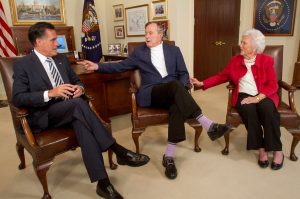
By Richard Cowan and Susan Cornwell
WASHINGTON (Reuters) – The Republican-led U.S. Senate planned votes on Thursday for competing proposals to end the partial government shutdown – both of which were likely to fail – as lawmakers and the White House sniped at each other over how to break their monthlong impasse.
Just hours before the Senate was scheduled to vote, there were signs that lawmakers might consider new ideas for ending the 34-day shutdown, which was triggered by Trump’s demand for money to fund his long-promised wall on the U.S.-Mexico border. The shutdown has left hundreds of thousands of government workers furloughed or working without pay.
House of Representatives Speaker Nancy Pelosi, a Democrat, told reporters that she was willing to meet face-to-face with Republican President Donald Trump to discuss the issue.
Her comment came one day after she announced that Trump’s State of the Union speech in the House chamber, scheduled for Tuesday, would not occur until the shutdown ended, despite the president’s plans to come. Trump, who considered giving the speech at another venue, conceded late on Wednesday and said he would deliver the speech in the House in the “near future.”
Trump wants $5.7 billion for the border barrier, opposed by Democrats, as part of any legislation to fund about a quarter of the federal government.
The longest such shutdown in U.S. history has left 800,000 federal workers, as well as private contractors, without pay and struggling to make ends meet, with the effects on government services and the economy reverberating nationwide.
U.S. Commerce Secretary Wilbur Ross on Thursday urged furloughed federal workers to seek loans to pay their bills while adding in a CNBC interview that he couldn’t understand why they were having trouble getting by.
Pelosi denounced the comments.
“Is this the, ‘Let them eat cake’ kind of attitude or ‘Call your father for money?’ or ‘This is character building for you?'” Pelosi asked at a news conference.
She said she did not understand why Ross would make the comment “as hundreds of thousands of men and women are about to miss a second paycheck tomorrow.”
Trump had a response for Pelosi as well.
“Nancy just said she ‘just doesn’t understand why?’ Very simply, without a Wall it all doesn’t work. Our Country has a chance to greatly reduce Crime, Human Trafficking, Gangs and Drugs. Should have been done for decades. We will not Cave!” he said in a tweet.
VOTES PROCEED
Meanwhile, Senate Majority Leader Mitch McConnell planned a vote on Thursday afternoon on a Democratic proposal to fund the government for three weeks that does not include wall funding.
Its prospects looked dim in the Republican-majority Senate, although at least one conservative senator reportedly plans to back it. The Democratic-controlled House has passed similar bills but Trump has rejected legislation that does not include the wall funding.
McConnell has previously said he would not consider legislation that Trump did not support. The fact that he is willing to allow a vote suggests he may be trying to persuade lawmakers of both parties to compromise.
Republican Senator Cory Gardner intends to vote for the bill, the Denver Post said, citing the lawmaker’s spokesman. Gardner’s representatives could not be reached for immediately for comment.
McConnell also planned to hold a vote on a separate bill that includes wall funding and a temporary extension of protections for “Dreamers,” hundreds of thousands of people brought to the United States illegally as children, to reflect an offer Trump made on Saturday.
Democrats have dismissed Trump’s offer, saying they would not negotiate on border security before reopening the government and would not trade a temporary extension of the immigrants’ protections in return for a permanent border wall they have called ineffective, costly and immoral.
McConnell’s calculation may be that if both bills fail, Republicans and Democrats would be convinced to seek a deal.
One possibility emerged on Wednesday when House Democratic leaders floated the idea of giving Trump most or all of the money he seeks for security along the Mexican border but that could not be used to build a wall.
Representative James Clyburn, the No. 3 House Democrat, said Democrats could fulfill Trump’s request for $5.7 billion for border security with technological tools such as drones, X-rays and sensors, as well as more border patrol agents.
A Reuters/Ipsos poll last week found more than half of Americans blamed Trump for the shutdown even as he has sought to shift blame to Democrats after saying last month he would be “proud” to close the government for border security.
(Reporting by Richard Cowan and Susan Cornwell; additional reporting by Susan Heavey and Roberta Rampton; Writing by Jeff Mason; Editing by Bill Trott)












